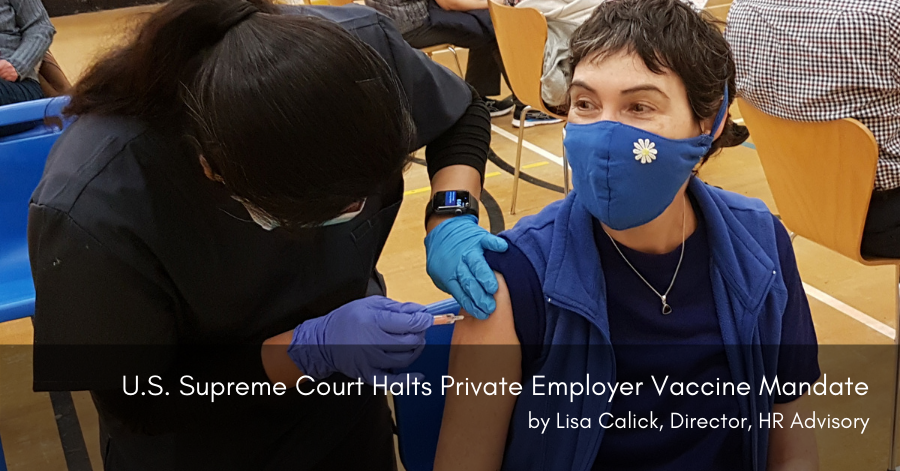It has been quite a year, and most of us are glad to see 2020 come to an end. Businesses have had to pivot pretty quickly in a number of areas due to the pandemic this year. Before we ring in the new year, it is important to note the following changes, many of which result from the stimulus relief bill passed by Congress. While this bill is not yet law, employers should be aware of the provisions that may be applicable to them if and when these measures are signed into law.
Paid Sick and Family Leave
As written, the Families First Coronavirus Response Act (FFCRA) expires on December 31, 2020. After that date, there will no longer be a requirement for companies to provide paid leave under this Act.
The new stimulus bill passed by Congress, however, allows employers to continue to claim refundable payroll tax credits for paid leave beyond December 31, should employers choose to provide it under the terms of FFCRA. Any paid leave, which would have been covered under FFCRA, could still be used to claim the payroll tax credits through March 31, 2021.
It is important for companies to remember that regardless of their decision to continue the paid leave benefits, any leave taken as a result of the pandemic may still be subject to state and local paid leave laws, many of which would cover employees who need leave for COVID related reasons.
For 2020, employers who provided paid leave under FFCRA should properly report such leave wages on the Form W-2, Box 14 or in a separate statement provided with the Form W-2.
Payroll Tax Deferrals
There are two separate programs designed to allow for a deferral of payroll taxes. President Trump’s memorandum in August has allowed companies to defer the withholding and deposit of employees’ payroll taxes through 2020, with the requirement that companies increase the employee’s withholdings between January 1 and April 30, 2021. The new stimulus bill does provide an extension of the repayment period through December 31, 2021.
Additionally, under the CARES Act, companies have had the ability to defer the employer’s share of social security taxes throughout 2020, with half of the deferred amounts payable in 2021 and half in 2022. It is important for companies to remember that this deferral still expires on December 31, 2020.
Health and Dependent Care Flexible Spending Accounts
The current version of the relief bill allows companies to amend their FSA plans to permit individuals to roll over unused amounts in their health and dependent care flexible spending accounts from 2020 to 2021, and from 2021 and 2022, as well as to allow an extension of the grace period to 12 month after the end of the plan year, thus preventing employees who were unable to use their funds from losing them at year-end.
While must of the focus is currently on the extended benefits provided in the stimulus bill as indicated above, companies should also be aware of these additional upcoming changes:
Minimum Wage
The new year is also often a time when state minimum wage increases take effect. Companies should pay close attention to any changes in their state or local minimum wage laws, as many states will see increases. In our area, for example, New Jersey’s minimum wage is set to increase, as well as certain counties in New York State. It’ll be important to get ahead of these changes before the first payroll is processed in the new year.
New Form 1099-NEC
This year the IRS is requiring businesses to report nonemployee compensation on the new Form 1099-NEC instead of Form 1099-MISC. Companies that use independent contractors, gig workers or self-employed individuals should report that compensation on the new form. Form 1099-MISC will now be used to report miscellaneous income.

 Previous
Previous





